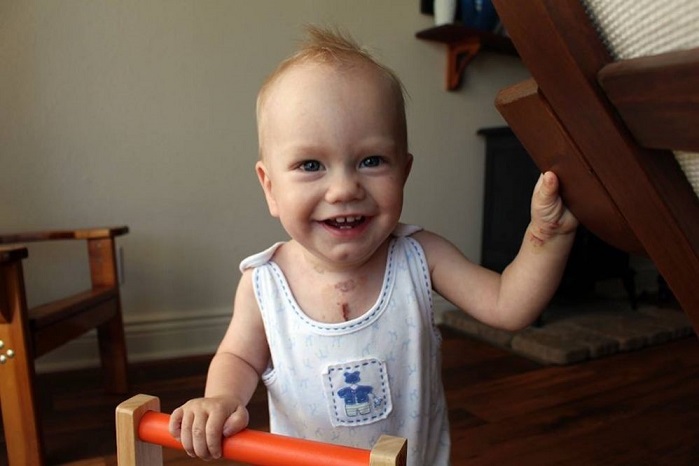Every year, LifeNews learns of many, many parents who faced pressure to abort their unborn baby because of a medical condition.
Abortion activists often tell these worried, heartbroken parents that it’s better for their unborn baby to be killed in an abortion than to live and suffer with health problems. The argument is essentially the same one that euthanasia advocates use to justify killing born people who are suffering from physical or mental health problems. The essence of it is that certain groups of human beings as less valuable than others.
Frances Klimas realized how pervasive this pro-death argument has become when she was pregnant with her son Walter.
In a column for The Federalist, Klimas explained that her son Walter was diagnosed with a critical Congenital Heart Defect while he was in the womb. She said doctors suggested that she abort Walter several times, and they constantly referred to him as “the fetus” even though she and her husband had already named him.
SUPPORT LIFENEWS! If you like this pro-life article, please help LifeNews.com with a donation!
Klimas explained her situation:
22 years old, newly married, and pregnant with my first child. I had just moved to a new state, far away from family, to support my husband in his career as a Marine—a duty that keeps him away from home 50 to 75 percent of the time. I had just started a new job with great pay and good benefits, and was part of a fast-track program to high-level management positions within a Fortune 500 company. It was also a job wherein I would soon use all my sick time and vacation going to doctor’s appointments, begin my FMLA early, and later resign, unable to keep up with the demands of work and the extensive prenatal care we needed for our son.
My situation was never desperate. It was happy, beautiful, and full of life’s challenges, but given the news we would soon be given about Walter’s heart, many would not fault me for taking “mercy” on my child and ending his life prior to his birth.
She said many families are not presented with all the options and resources until after they decide not to abort.
“When I was handed information on ToF w/ PA, there was a simple medical description of the diagnosis describing the four-part defect (five including the Pulmonary Atresia), and a notice of my abortive rights in the state of Virginia,” Klimas said. “No adoption pamphlets, no CHD support group information, no contacts of local parents raising a child with CHD who may be able to provide some answers. No hope.”
Families deserve to know all the information before they make a decision, including the option to make an adoption plan for their child, Klimas said. If a family is not able to support a child with complex medical needs, there are other families who will, she said.
The medical community and society in general is letting women and babies down by pushing abortion as a first option when the baby has health problems, she continued. Klimas said she feels for the women who trusted medical professionals led to believe that abortion was the best option for their suffering child.
“They trusted medical providers who made them feel that life with an imperfect heart (needing painful open heart surgeries and the uncertainty of transplants) is not a life worth living,” she continued. “Because our society and culture has told them that an imperfect life is a valueless one.
She concluded: “If the Left is earnest about their respect for a mother’s choice—if they look at a room of toddlers and see Walter’s life just as equal and valuable as all the others, despite his critical life-threatening heart defect—then we can agree that medical practitioners should be legally required to provide alternative options to abortion as equal and valuable as termination.”
Klimas’s story is not rare by any means. Families frequently say doctors encouraged them to abort an unborn child because of Down syndrome or spina bifida. Last year, British journalist William Skidelsky said his wife’s doctor even encouraged them to abort their son because of a cleft lip. The doctor called their unborn son “disgusting,” even though his condition was easily correctable.
Abortion is not compassionate or merciful. It is often a painful, brutal procedure that destroys an unborn baby’s life and puts the mother’s health at risk, too. The truth is that abortion has become society’s new accepted way of discriminating against people with special needs, of saying that not all human lives are valuable.








